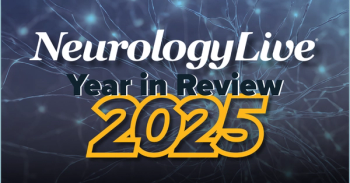
These were the most impactful FDA approval stories that were part of our coverage in 2025, brought to you as part of NeurologyLive's Year in Review.

These were the most impactful FDA approval stories that were part of our coverage in 2025, brought to you as part of NeurologyLive's Year in Review.

NeurologyLive® provided in-depth coverage of conferences in 2025, highlighting advancements in diagnostics, treatments, and multidisciplinary care across multiple neurological conditions.

Here's some of what is coming soon to NeurologyLive® this week.

Avadel's REVITALYZ trial for Lumryz in idiopathic hypersomnia shows promise, potentially offering a new treatment option for this underserved condition.

Test your neurology knowledge with NeurologyLive®'s weekly quiz series, featuring questions on a variety of clinical and historical neurology topics. This week's topic is on RBD as a prodromal marker for synucleinopathies!

In this Neuropathways piece, Kevin Chang, PharmD, explores the complexities of remyelination in multiple sclerosis and the potential of Wnt/β-catenin signaling as a therapeutic target.
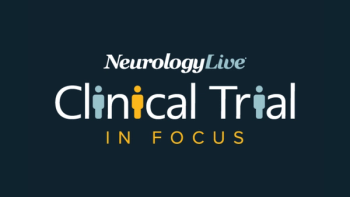
Apazunersen, an investigational intrathecal therapy, is being evaluated in the phase 3 Aspire trial for pediatric Angelman syndrome, with study completion anticipated in the second half of 2026.
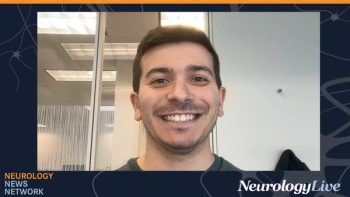
Neurology News Network for the week ending December 27, 2025. [WATCH TIME: 4 minutes]

Take 5 minutes to catch up on NeurologyLive®'s highlights from the week ending December 26, 2025.

As part of NeurologyLive®'s Year in Review 2025, we've compiled the most-listened episodes this year of our biweekly podcast, Mind Moments®.

Mind Moments®, a podcast from NeurologyLive®, brings you an exclusive interview with Lindsay McCullough, MD. [LISTEN TIME: 14 minutes]

A look back at clinician-led features from 2025 that examine the questions, data, and decisions shaping neurologic care.

A trio of neurology experts discussed the clinical application of the 2025 updated multiple sclerosis diagnostic criteria, including imaging and biomarker tools, to support patient care.

As part of NeurologyLive®'s Year in Review, take a look at our top expert interviews regarding multiple sclerosis in 2025.

The director of the Pediatric Epilepsy Center at UCSF reviewed recently presented interim phase 1/2 data for ETX101, a one-time AAV9 gene regulation therapy aiming to increase SCN1A expression in inhibitory interneurons in Dravet syndrome.

As part of NeurologyLive®'s Year in Review, we've compiled some notable trials that began in 2025.

Explore the transformative buzzwords in neurology for 2025, highlighting advancements in AI, gene therapy, personalized treatment, and neuroplasticity.

Explore the evolving landscape of developmental and epileptic encephalopathies in adults, highlighting precision therapies and the need for accurate diagnoses.
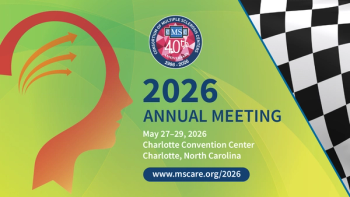
Kathleen Costello, CRNP, MSCN, offers highlights of the upcoming 2026 CMSC Annual Meeting, which will celebrate 40 years of progress and innovation in MS care.

Gain Therapeutics advances Parkinson's treatment with GT 2287, showcasing promising safety and tolerability in ongoing trials. Discover the latest findings.

Continuem's PIPE-307 trial for relapsing-remitting multiple sclerosis failed to meet primary goals, yet the company remains committed to exploring future therapies.

Here's some of what is coming soon to NeurologyLive® this week.

Test your neurology knowledge with NeurologyLive®'s weekly quiz series, featuring questions on a variety of clinical and historical neurology topics. This week's topic is on neuromodulation for Parkinson disease!

New findings from the LUMINA trial reveal AMX0114's safety in ALS patients, paving the way for further research and potential treatment advancements.

Neurology News Network for the week ending December 20, 2025. [WATCH TIME: 4 minutes]

GLP-1 research in neurology is on the rise, with several pivotal studies lending insights into their role.

Take 5 minutes to catch up on NeurologyLive®'s highlights from the week ending December 19, 2025.
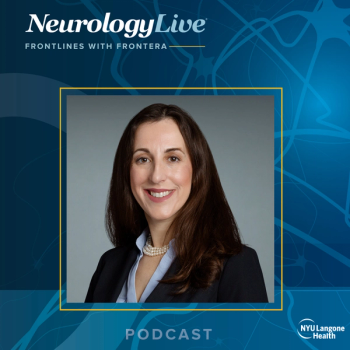
Frontlines with Frontera, a podcast hosted by neurointensivist Jennifer Frontera, MD, brings you an exclusive interview with Sahar Zafar, MD, MBBS. [LISTEN TIME: 30 minutes]

The expanded indication brings n-butyl cyanoacrylate’s established performance into the treatment of chronic subdural hematoma, a condition for which traditional surgical interventions may not always be suitable or effective.

Phase 3b study revealed Itvisma's safety and efficacy in treating spinal muscular atrophy, showing modest motor function improvements in patients previously on other therapies.